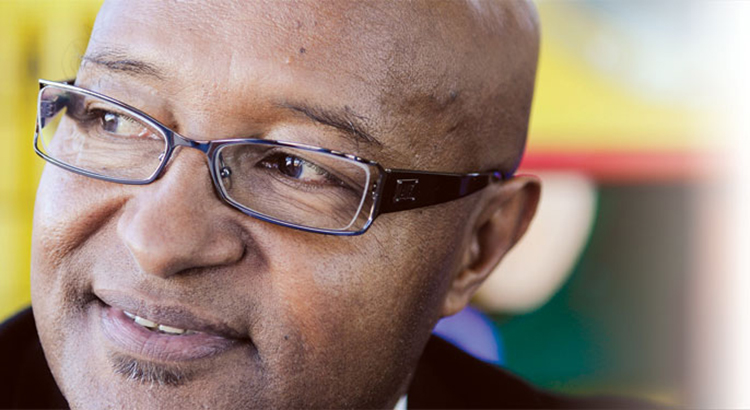Geta Asfaw, ’79, ’82, shares his success with others

Ask Geta Asfaw about his greatest success and you might expect the tale of how he struggled alone as a young Ethiopian immigrant to become a millionaire entrepreneur, or of how he worked as a maitre d’ and waiter to fund his three degrees. Instead, Asfaw measures his success by the amount he is able to help those in his community.
Owner of eight McDonald’s restaurants—with a ninth opening next year—and a philanthropist in the Denver area, Asfaw is a donor to and sponsor for dozens of organizations. The most impressive, however, may be “Arches of Hope,” a yearly bike giveaway that has Asfaw providing bikes, helmets and Christmas goodies to underprivileged children.
Since Arches of Hope began in 2006 with 50 bicycles, it has grown to nearly 400 cycles. Fifth- and sixth-graders in Denver are eligible based on financial need, academic merit, community involvement, terminal illness, having parents in the military or good citizenship. For some, it is the only Christmas gift they receive.
“It’s designed to encourage success in youth in the area,” says Asfaw, who relied on a nurturing community to help him achieve his own goals.
After leaving his native Ethiopia in 1972, Asfaw lived in Seattle, where he attended the UW and developed a support network by contributing to organizations such as the National Association for the Advancement of Colored People and volunteering with the Red Cross.
After graduating, he purchased a 7-Eleven store, which allowed him to increase his philanthropy.
While Asfaw ultimately left Seattle for Denver in order to begin his career as a McDonald’s franchise owner, he never forgot his roots.
“UW really helped me a great deal,” he says, “not just academically but also giving and sharing.”
In 2006, Asfaw and his wife, Janice, began housing their charitable work under one roof when they started the Asfaw Family Foundation International, a charity that, in addition to bicycles, gives away thousands of scholarship dollars each year to Colorado high school seniors—especially to African-American males—and gives grants to elementary schools in Ethiopia, provided most of the students are girls.
The charity’s focus on education stems from its importance in Asfaw’s eyes.
“I value education in everything I do,” he says. “We tell the scholarship recipients that education will open up any possibility to them.”
Today Asfaw considers himself a wealthy man. Though he has the means to live in extravagance, he measures his riches not by his bank account but in the amount he is able to help those around him.
“When you help other people, people go out of their way to help you,” he says, “and once you have the desire to succeed, no one can stop you but yourself.”